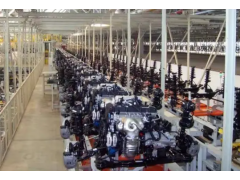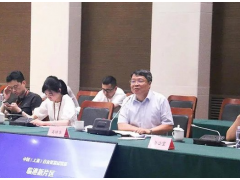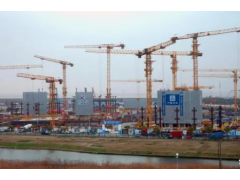On June 2, the "Regional Comprehensive Economic Partnership Agreement" (RCEP) officially entered into force for the Philippines, which marks the full entry into force of RCEP for the 10 ASEAN countries and 15 signatories including Australia, China, Japan, South Korea, and New Zealand. This also means that the free trade area with the largest population, the largest economic and trade scale and the most development potential in the world has entered a new stage of full implementation.
The full entry into force of RCEP not only injects strong impetus into regional economic integration, but also plays a positive role in promoting the level of trade and investment liberalization and facilitation in East Asia and helping the long-term and stable development of the regional and global economies.
The full entry into force of RCEP has multiple meanings
RCEP covers 30% of the world's economic scale, 2.2 billion people, and one-third of trade in goods. It is the largest free trade agreement in the world.
"As the largest high-level free trade agreement, its commodity coverage catalog and tariff reduction are relatively large. Although some transitional arrangements have been made in consideration of the actual situation of some developing countries, high-level trade liberalization has been made. It is of great practical significance to promote an open world economy and economic globalization.” Xu Hongqiang, director and researcher of the Research Office of the Foreign Economic Research Department of the Development Research Center of the State Council, said in an interview with a reporter from China Economic Times.
According to Zhang Jianping, deputy director of the Academic Committee of the International Trade and Economic Cooperation Research Institute of the Ministry of Commerce, the full entry into force of RCEP has multiple meanings in the context of the current economic globalization encountering headwinds and facing many challenges. In an interview with a reporter from the China Economic Times, he said that RCEP has greatly improved market expectations for global economic growth, brought about predictable growth in intra-regional trade and investment and the connection and cooperation of supply chains, and significantly supported the growth of the global economy. expected. At the same time, RCEP has brought real support effects to global economic growth and employment.
"The East Asian economic circle represented by the 15 signatories of RCEP is currently a region with relatively fast global economic growth, and it is also the most important source of power for global economic growth. The increase in mutual trade and mutual investment within the region will obviously affect Global development plays an important driving force." Zhang Jianping said.
He also believes that the collaboration of the global value chain will be more significantly enhanced and improved within the region, especially in the face of deglobalization. The RCEP regional integration market has 20 chapters of rules and content, supported by 40% of the cumulative rules of origin. The internal supply chain and value chain in the region are significantly, efficiently and closely connected, which will bring global trade, investment and economic growth. new momentum.
"The successful implementation of RCEP has strengthened our confidence in globalization. In recent years, globalization has encountered major challenges, which have affected global economic development. RCEP follows the classic economic and trade cooperation framework and can be regarded as a positive trend in the countercurrent of globalization. Energy." Shi Huimin, an associate professor at the School of Economics at Renmin University of China and a researcher at the National Academy of Development and Strategy at Renmin University, said in an interview with a reporter from the China Economic Times that RCEP is an important economic and trade agreement in the Asia-Pacific region. Win-win cooperation is of great strategic significance for the changes and upgrades of my country's industrial structure.
The implementation of RCEP has played an important role in stabilizing my country's foreign trade and foreign investment. According to data from the Ministry of Commerce, in terms of foreign trade, from January to April 2023, the total import and export volume between my country and other RCEP members was 4.12 trillion yuan, a year-on-year increase of 7.3%, accounting for 30.9% of my country's total foreign trade import and export; in terms of attracting foreign investment In 2022, my country's actual investment from other RCEP members will be US$23.53 billion, a year-on-year increase of 23.1%. From January to April 2023, my country actually utilized nearly US$8.9 billion in investment from other RCEP members, a year-on-year increase of more than 13.7%.
In Xu Hongqiang's view, China has formed a regional value chain in East Asia, and its industrial division of labor, industrial linkages, and cultural and social ties with these countries have been very close and deep. RCEP will further improve the level of trade and investment liberalization and facilitation, and will greatly promote China's expansion of exports and imports.
"Especially in the current slow progress of the global multilateral trading system, the full effect of RCEP has played a very good role in demonstrating that China has a stable external environment, thereby enhancing the confidence of foreign investors and foreign companies in the Chinese market." Xu Hongqiang explain.
Bring more dividends to the enterprise
For enterprises, RCEP has brought real benefits. RCEP is superimposed on the bilateral free trade agreements that have taken effect between my country and other RCEP member states, creating good conditions for enterprises to enjoy better benefits and helping enterprises reduce trade costs.
"From the perspective of our company's overall foreign trade situation this year, the business in the RCEP region has maintained a growth momentum, and the import demand in non-RCEP regions, especially Europe and the United States, has slowed down significantly. Under the RCEP framework, import tariffs are reduced, and the cost of enterprises is also reduced. The subsequent reduction has played a very important role in promoting bilateral trade." Hu Xiaomin, manager of the foreign trade department of Zhejiang Dabolin Valve Co., Ltd., said in an interview with a reporter from China Economic Times.
Since RCEP came into effect, various localities have actively strengthened policy alignment, optimized the business environment, strengthened economic and trade cooperation with RCEP member countries, and effectively improved the level of support and services for enterprises.
Hu Xiaomin told the China Economic Times reporter that since RCEP took effect last year, enterprises have experienced great changes in trade facilitation. "For example, there were many kinds of certificates of origin in the past, and the procedures were very cumbersome. Since RCEP came into effect, the types and procedures of certificates of origin have been unified and simplified, and we really feel the facilitation of trade."
In Shi Huimin's view, the tariff reductions, investment and trade facilitation, and the relaxation of access restrictions brought about by RCEP can bring huge dividends to enterprises. In order to continue to release dividends, in the short term, the next step is to further understand, familiarize yourself with and explore the business opportunities of enterprises with different positioning. In the medium and long term, it is necessary to focus on the restructuring of the industrial chain layout and the internationalization and integration of economic, trade and business systems.
"It is necessary to make full use of the rules of origin, especially the 40% cumulative rules of origin, to make mutual trade and mutual investment based on global value chain cooperation closer, and the complementarity of advantages can be brought into full play. At the same time, all The RCEP member states must also keep pace with the times, on the one hand to speed up the implementation of existing rules, and on the other hand to further unify and clarify the rules.” Zhang Jianping believes.
Xu Hongqiang said that after more than a year of construction, the mechanisms and systems related to RCEP are relatively sufficient, and they must be implemented as soon as possible. More importantly, we should further guide the combination of RCEP and the construction of the "Belt and Road", the construction of free trade zones, and the opening of border ports, so as to better exert the synergistic effect, so as to help enterprises connect with opportunities and enjoy policy dividends.




